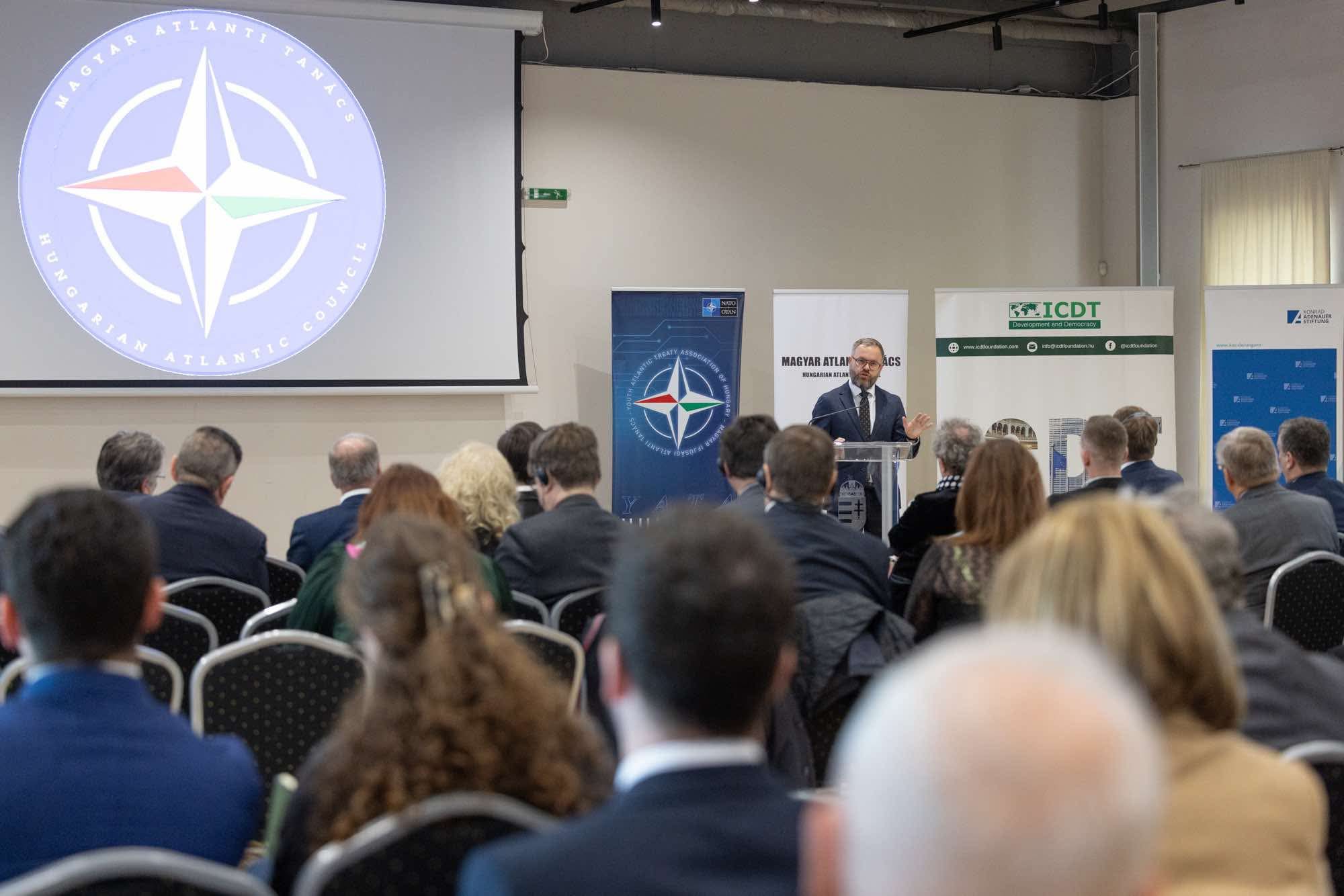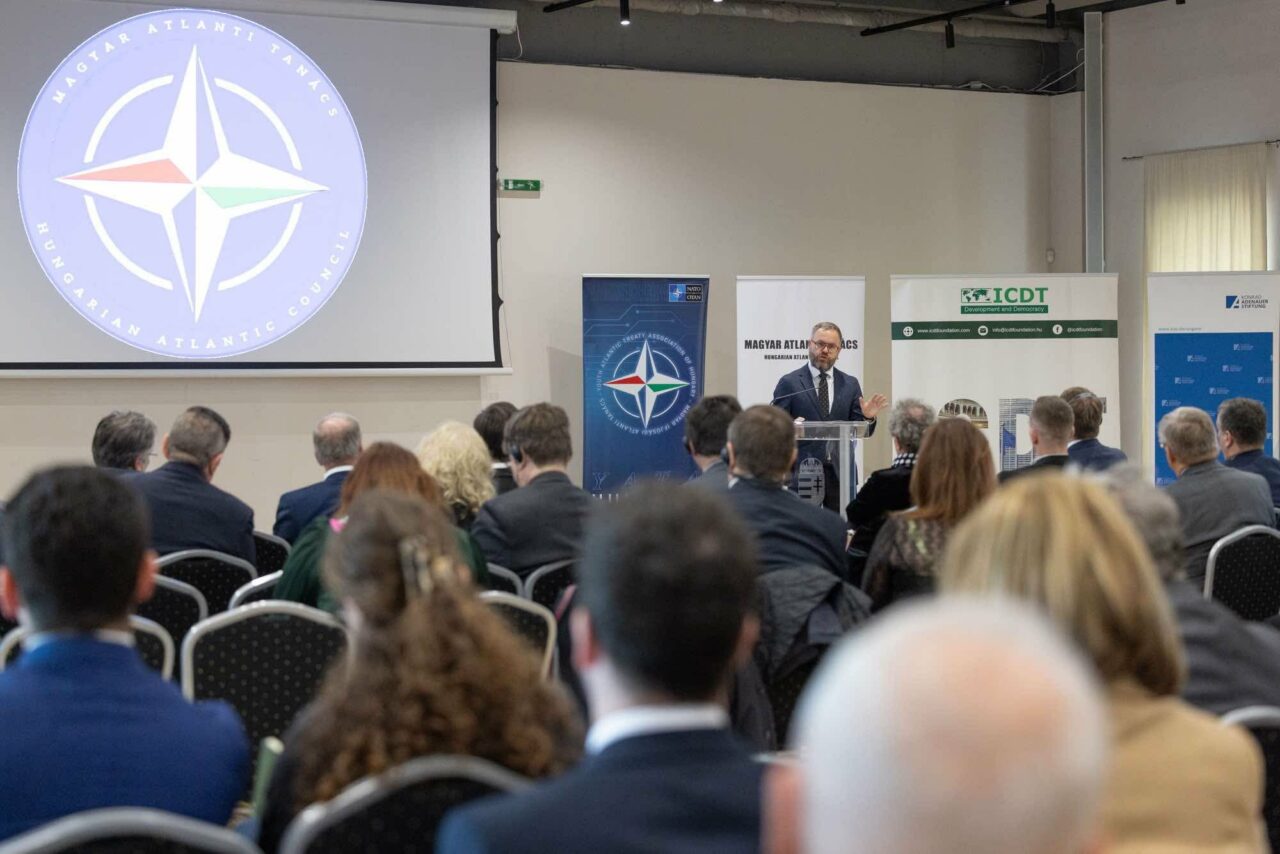Hungary can be a winner of the new world order shaped by Trump and allies, says government

The transformation of the global order presents “a historic opportunity for Hungary”, the prime minister’s political director told a conference organised by the Hungarian Atlantic Council in Budapest on Thursday. Balázs Orbán said the world had left behind the “neoliberal world order” and entered a multipolar one.
New world order
Balázs Orbán said the world had left behind the “neoliberal world order” and entered a multipolar one. He said that whereas over the last 100 years Hungary had lost out on every major shift in the global order, it now had a chance to influence “what the new world will be like”. The new global order, he said, would be shaped by “unpredictability, adding that the world had to adapt to constant change. He said Hungarian diplomacy would also adopt a “new posture” defined by the principle of “Hungary first”.
Orbán said that although this new approach was “unfathomable” compared to the previous liberal world order, ongoing changes had to be viewed through the lens of the new world order. He said that with Donald Trump’s election, the United States had also joined the ranks of countries that wanted to change the status quo, adding that “the defenders of the previous liberal world order have retreated to Europe”.

Pointing out certain anomalies which, he said, stemmed from the “internal contradictions” of the neoliberal world order, Orbán added that the neoliberal approach had ignored the link between economic performance and the nation. This led to developed countries seeing their industry decline and their production outsourced to other parts of the world based on the belief that the future lay in services and that industry was obsolete.
We must develop our industry
He said, however, that the need for an industrial sector was also a question of national sovereignty, adding that this was the reason why Hungary had increased its industrial output by 20 percent since 2010. He said liberal foreign policies were based on values and intentions, but they had failed to take into consideration their consequences. This approach to foreign policy, he said, weakened the West and strengthened its opponents.
Though moral aspects mattered, he said, it was also important to consider interests, adding that Trump was adjusting principles to interests, rather than the other way round. Orbán said migration was another contradiction of the liberal world order, explaining that it undermined the functioning of the state and society.
He said that because Europe had been convinced after the Cold War that liberal ideology had triumphed, it had chosen to “outsource” its defence to the US, which had severely weakened its military power. He underscored the need for a “Europe of nations”, saying federalism posed a growing danger to the continent.
Hungarian foreign policy, Orbán said, needed to be based on national interests and reality. He said Hungary refused to compromise on its position that the strategy of bolstering Europe’s defences must not be about strengthening Ukraine. Decisions on defence must be made by European Union member states rather than Brussels, he said. Orbán said there was no alternative to connectivity, which, he said, could be Hungary’s contribution to the stability of the global order.
EU minister Bóka: ‘We are at beginning of new era, EU must change’
Hungary’s EU affairs minister, in Skopje on Thursday, warned how a new era full of uncertainties lay ahead but it was clear that “the European Union must change”. János Bóka gave a lecture at Skopje University, in North Macedonia, on “how to make Europe great again”.
Outlining his talk on Facebook, he said Hungary’s EU presidency had coincided with a transition of the bloc’s institutions alongside “unparalleled challenges” such as the war in Ukraine, the EU’s declining competitiveness and the migration crisis.
Bóka emphasised the importance of discussing how to change the EU and find alternatives to the way it functioned. It was not customary in the EU to present and debate alternatives, he said. “Those who try to do that get silenced.” European institutions themselves must be open to debate, he added.
The minister questioned whether the EU would have a role to play in guaranteeing its own security and defence, and if so, what this would look like. “Will the EU be able to move from a regulatory role to an innovative, supportive one in order to become more competitive?” He also pondered whether the EU would finally solve the migration crisis for good or remain “captive to its past mistakes”.
Read also:
- Would the Hungarian government turn its back on Russia if backed by the US? – read more HERE
- Forint at a two-month low due to Trump’s big decision







